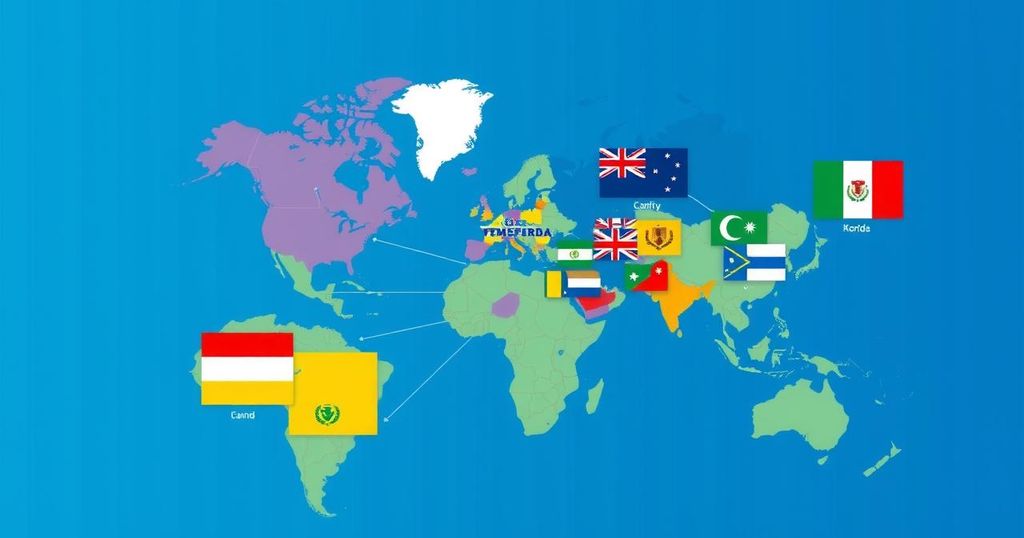Countries at the UN climate summit COP29 face pressure with no financial deal reached as discussions enter the final day. Wealthy nations are expected to commit to over $1 trillion in aid for developing countries affected by climate change. Criticism emerges over the absence of financial figures in draft proposals, leaving developing nations feeling disrespected. Calls for stronger commitments to reduce fossil fuel emissions are echoed by leaders, as the summit concludes with the need for urgent action.
At the conclusion of COP29, the United Nations climate summit held in Baku, Azerbaijan, nations faced intensified pressure due to the absence of a financial agreement. Throughout the conference, the pivotal topic has been climate finance, which wealthy countries are expected to allocate to developing nations. This funding is essential to address damages caused by climate change, projected at a staggering $1 trillion or more. However, draft documents released recently left financial commitments unspecified, leading to dissatisfaction among developing nations, which feel marginalized in the discussions.
Despite officials expressing optimism for a forthcoming financial package, key stakeholders contended that the lack of concrete financial figures undermines the seriousness of the negotiations. Representatives from vulnerable nations, such as Panama and Niue, highlighted their desperation for action, articulating that the absence of firm financial commitments signals disrespect for those most affected by climate change. Moreover, discussions regarding emissions reduction and transitioning to clean energy sources remain stagnated, with criticisms directed toward the proposals for lacking strength and urgency in addressing fossil fuel dependence. Notably, remarks from global leaders underscore the pressing need to phase out fossil fuels to meet climate objectives, with the stakes raised as nations head into the final hours of COP29 without a definitive agreement.
The COP29 U.N. Climate Summit is crucial for global efforts to tackle climate change and allocate financing to developing countries impacted by environmental damage. At the heart of these discussions is the commitment of wealthier nations to provide material support, which is calculated to be over $1 trillion. This financial assistance aims to aid adaptations to climate change and address losses incurred from extreme weather events. The ongoing negotiations have revealed challenges in achieving consensus and transparency regarding financial commitments, leading to significant tensions especially among developing nations. The urgency for a stronger stance on fossil fuel emissions and sustainable practices is palpable among global leaders, emphasizing the dire need for actionable outcomes from the conference.
In summary, as COP29 approaches its final day, the lack of a financial agreement illustrates the complex dynamics of global climate negotiations. Developing nations have expressed profound frustration with the insufficient progress in securing necessary funding commitments from wealthier nations. With critiques highlighting the urgency of cutting fossil fuel reliance and the need for substantive financial proposals, the outcome of these talks will significantly impact the future of climate action and the global response to environmental challenges.
Original Source: apnews.com






